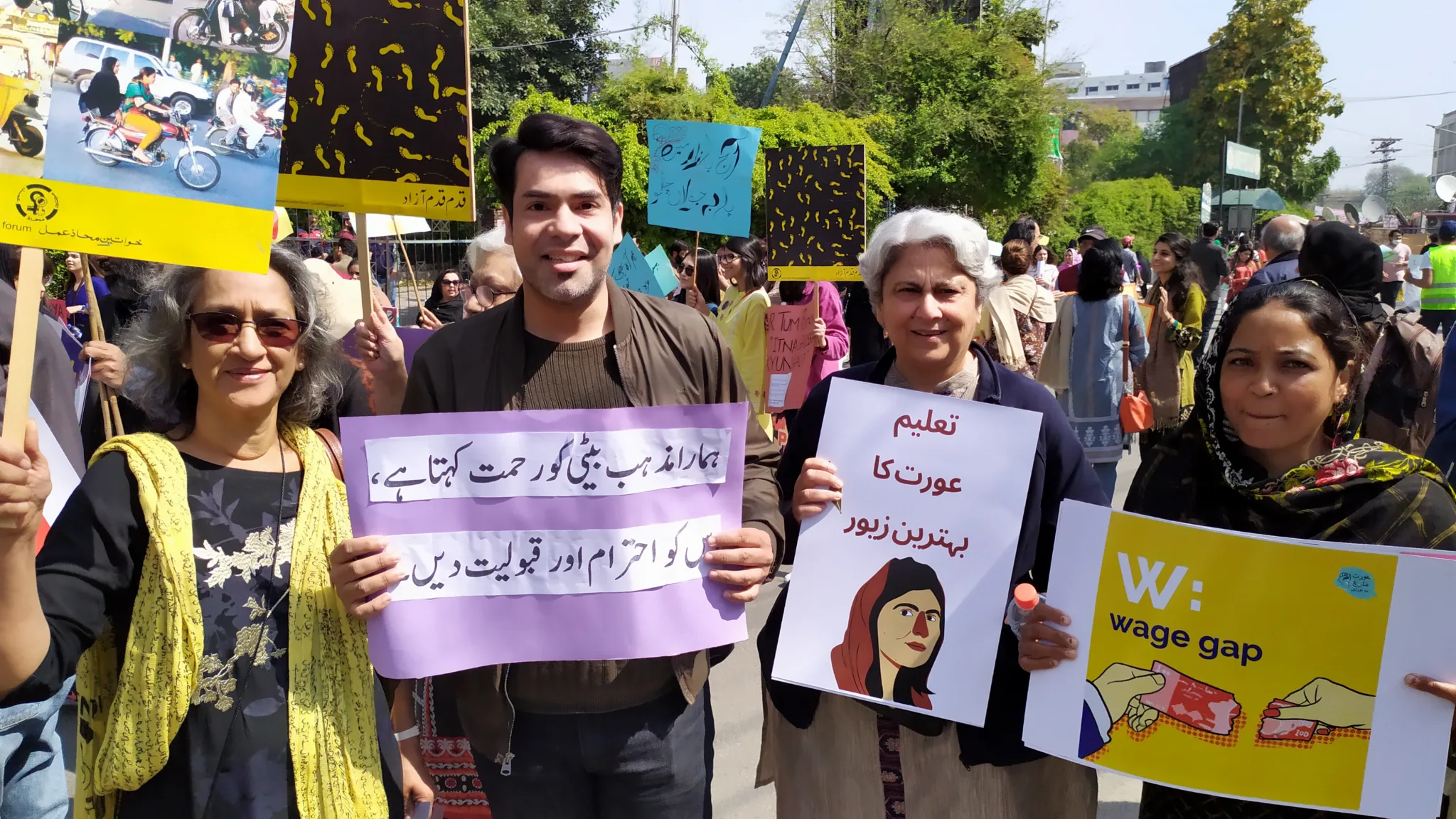As we had embarked on another Women’s Day on March 8, 2025, women are being celebrated all over the world in different ways. Meanwhile in Pakistan, upholding the long-standing tradition, protesters organized the Aurat March on March 9, 2025, in Islamabad.
This year the march was themed “Feminist politics vs Patriarchal State”. A large number of women and allies crowded the streets across Islamabad, demanding justice equality and economic empowerment. Despite, year by year emphasis on gender pay gap, workplace harassment, financial exclusion and labor rights by the protestors, the policy changes are not visible.
One of the reasons for the ineffectiveness of the Aurat March could be overshadowing of mainstream issues by the provocative slogans. Well, I am not debating on whether they are provocative in nature or not, but at least they are perceived to be provocative by a large section of the society including women themselves. This perception calls for a point to ponder; Can the Aurat March translate its demands into real economic reforms that uplift women in Pakistan?
First let’s have a look at where do we stand in terms of WOMEN EMPOWERMENT and GENDER QUALITY as a nation. According to the World Economic Forum’s Global Gender Gap Report 2024, Pakistan ranks 145th out of 146 countries in economic participation, with only 21% of women in the labor force compared to 84% of men. Moreover, a 2023 World Bank study found that over 80% of women in Pakistan remain unbanked, restraining their financial independence.
These startling statistics are not just numbers rather they reflect systemic obstacles that thwart women from contributing fully to Pakistan’s economy. Limited access to formal employment, financial services, and entrepreneurial opportunities restricts their economic independence, keeping them trapped in cycles of dependence.
Nevertheless, women’s economic empowerment is not just a matter of equality, it is an established strategy for national economic growth. Studies show that increasing women’s participation in the workforce can significantly boost GDP, household incomes, and overall economic stability. So, what steps can be taken to ensure meaningful progress?
Well, the Aurat March aims at addressing and resolving all the issues, women in our country facing. But whether any of the issues has been resolved so far? I believe we all know the answer; NO, at least the data mentioned above suggests so. Anyways, here due to shortage of space and words, I mean to put emphasis only on the economic issues.
Now, do we see a hope of translating the Aurat March agenda into economic empowerment of women in Pakistan? For answering this question, first we need to dive into the reasons due to which it hasn’t been done so yet. As I mentioned above, one of the reasons is the perceived nature of slogans, like the recent one “Apni Aftari Khud Banao” (Make your aftar by yourself) or the famous one “Mera Jism Meri Marzi” (My Body, My Choice). However, none of the slogans were meant to call for immorality but the perception was built so.
Such kind of slogans challenge societal norms in bold, confrontational ways sometimes become the center of media attention, diverting public discourse away from crucial topics like women’s economic empowerment and policy reforms. Instead of focusing on the gender pay gap or access to education, debates revolve around whether certain slogans are culturally appropriate.
Another reason for the failure of policy reforms could be portrayal by media; Mainstream and social media often sensationalize the most controversial aspects of the march, rather than highlighting demands like equal wages, maternity benefits, or financial access for women. This distracts from the core agenda and fuels misconceptions about the movement’s objectives.
Similarly, it has also been noticed that opponents of the Aurat March use provocative slogans as a weapon to discredit the movement, portraying it as a Western-funded agenda rather than a genuine struggle for women’s rights in Pakistan. This further polarizes the debate and makes constructive discussions on economic and social reforms more difficult.
Keeping in view the above mentioned scenario, what could be the way forward? I do agree that the BOLD slogans attract attention but the core agenda should not take a back seat. More emphasis on the practical solutions is the need of an hour and that is not a mean feat by the way. Hence, in order to bring the targeted economic reforms for women, the organizers can take the more strategic communication approach:
- The slogans should be framed around economic justice such as Financial Independence = Economic Empowerment OR Women Labor Builds the Nation
- Engaging policy makers into the discussions and highlighting the economic benefits of women’s workforce participation.
- Using media platforms to clarify miscommunication and misunderstandings.
- Try not to portray their demands in contradiction with the religious and cultural beliefs.
Above all, it needs to be emphasized that women’s economic empowerment is not just a feminist issue, it’s an economic imperative for Pakistan’s growth. The Aurat March has already ignited an important conversation, but to truly influence economic policies for women, it must ensure that its message is clear, strategic, and policy-focused.


